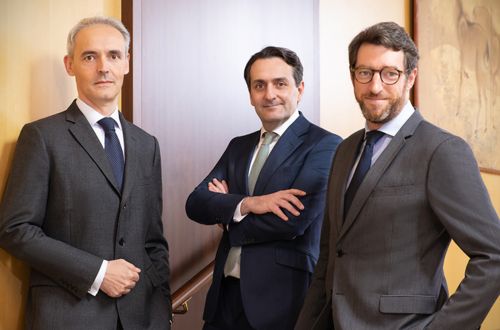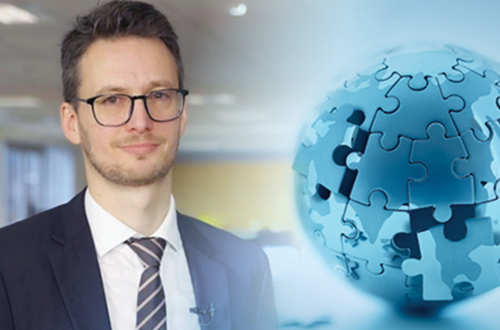The Loi Pacte: sharing of capital gains

The development of an employee savings scheme is a major milestone for a company. It is a key initiative that allows the company to build loyalty among its employees while boosting their participation in its results.
With this in mind, and in order to further promote such offers, the Loi PACTE[1] introduced an original capital gains sharing scheme.
This new scheme[2] allows shareholders in a company to commit to sharing with employees a portion of the capital gains realised on a sale of securities by the company.
The capital gains sharing contract
This scheme, known as “sharing of capital gains on sales of securities with companies’ employees”, is strictly regulated by legislation.
The law stipulates that the concerned shareholders (one or several) must commit to sharing with all employees of the company a portion of the capital gains resulting from a sale or purchase of securities.
This commitment is formalised through the prior signature of a capital gains sharing contract.
This contract, concluded for a minimum duration of five years, is signed directly by the holders of the securities and the company and determines the conditions under which the capital gains sharing will be carried out.
In this context, the company commits to transferring to the employees concerned the amounts resulting from the sale or purchase (up to 10% of the amount of the capital gain).
When the company in question is part of a group of companies[3], the commitment to sharing capital gains concerns all employees of the group’s companies.
Before entering into the contract, the company must have its own employee savings scheme (PEE), or a shared PEE for all of the group's companies, in place. The law stipulates that the amounts distributed must be paid into the PEEs of the beneficiary employees.
Finally, the law requires a minimum duration of three years between the date of signature of the capital gains sharing contract and the disposal of securities.
The French budget law of 2020, however, temporarily reduced this period to 12 months (under conditions) in order to ensure that the scheme applies to the maximum number of transactions possible, notably those slated for completion in 2021. This new period applies to contracts entered into through 24 May 2021.
The beneficiaries of the commitment
The capital gains sharing contract, entered into by the holders of the securities and the company in question, applies to all employees of the company (or the group).
This includes employees present in the company during all or part of the period between the date of the contract’s signature and the date of the sale of securities, given that the employees participate in the PEE as of the date of the sale.
Nevertheless, the contract must stipulate a company seniority requirement of between three months and two years.
Methods of payment distribution
The contract must specify the conditions and methods of distribution among employees of the amounts resulting from the commitment to capital gains sharing.
The distribution of this “unilateral employer contribution” may be uniform, proportional to the duration of the employee’s presence in the company over the period between the signature of the contract and the sale of the securities, and/or proportional to salaries.
The scheme stipulates that the party disposing of the securities must pay the applicable sums to the company within a period of one month following the sale.
Within the 90 following days, the company must distribute and transfer the amounts net of social security and tax charges to each of the beneficiary employees.
Failure to do so leads to the application of a late fee, at the company’s expense, to the payments due to each beneficiary at the legal interest rate as of the date of the missed payment.
An attractive tax regime
This scheme benefits from favourable social security and tax conditions, both for the employee and for the shareholder selling the securities.
A- For beneficiaries
The amounts distributed are paid into the PEE of beneficiaries up to an amount equal to 30% of the annual social security threshold, or €12,340 for 2020 (per beneficiary and per year).
This payment into the PEE is subject to the same social security and tax conditions as “classic” employers’ contributions. After five years (except in the case of early release), these amounts will then be exempt from income tax.
However, the amounts exceeding this threshold are paid directly to the beneficiary and are considered part of business revenue subject to income tax in the category of salaries and wages.
N.B: the amounts paid into the PEE are taken into account in determining the reference tax income of the beneficiary.
B- For the party selling the securities
For the selling party, the amount paid to employees pursuant to the commitment to sharing is deducted from the calculation of the capital gains on the sale and is therefore not taxable[4].
Nevertheless, this portion is taken into account in determining their reference tax income.
Moreover, the payments made by the party disposing of the securities to the company are not subject to transfer duties[5].
In conclusion, this scheme constitutes a new type of “management package”. It allows for the sharing of capital gains among all of a company’s employees in the event of a disposal. This employee loyalty-building tool is therefore complementary to existing schemes (free shares, stock-options, equity warrants, etc.).
It will be important to measure its attractiveness over time.
[1] Law no. 2019-486 of 22 May 2019 on the growth and transformation of companies. [2] Stipulated in Articles L.23-11-1 to L.23-11-4 of the French Commercial Code. [3] Companies controlling or controlled by the company. [4] French General Tax Code, Art. 150-0A, III-7 [5] French General Tax Code, Art. 797 A
This article provides options for consideration developed on the basis of the legislation in place at the time of its writing and is not equivalent to any legal or tax consultation that could engage the responsibility of its author. The reader is advised to refrain from initiating any such project until they have consulted with their legal and tax advisors.
July 08, 2020




